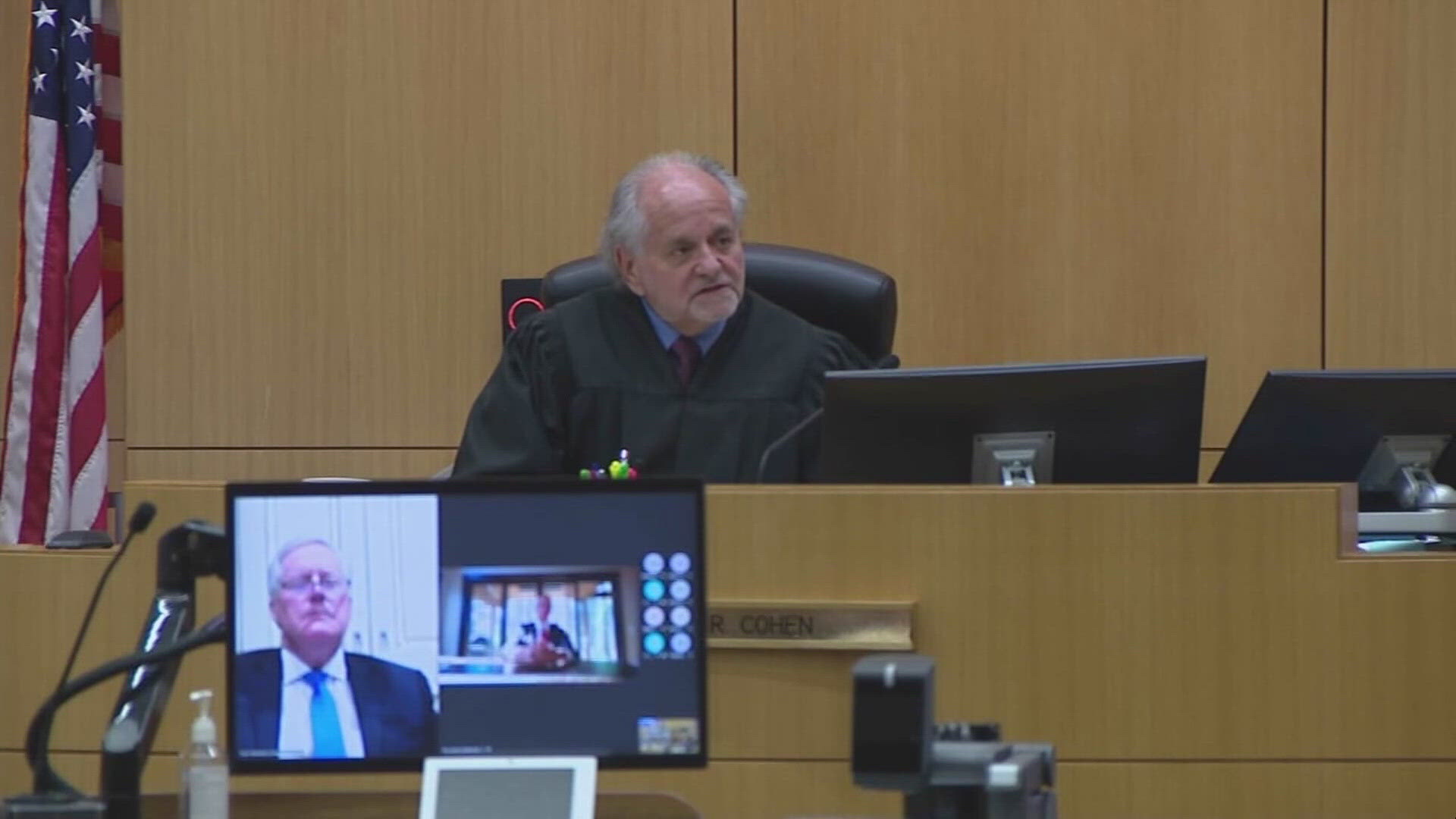PHOENIX — Maricopa County Superior Court Judge Bruce Cohen has sat on the bench for 20 years.
Cohen grasped the political stakes in the highly charged “fake electors” case brought by Democratic Arizona Attorney General Kris Mayes.
Eighteen Republicans - among them Donald Trump lawyer Rudy Giuliani, former White House Chief of Staff Mark Meadows, the former chair of the state GOP and a state senator – were charged last April with nine felonies apiece.
Mayes’ prosecutors allege they engaged in an illegal conspiracy to overturn President Joe Biden’s victory in Arizona in 2020 and hand the state’s 11 electoral votes to Donald Trump.
In late August, a small army of defense attorneys argued in court for Cohen to throw out the case.
“Whatever I do on any of these motions,” Cohen said at one point, “approximately half the people are going to vilify me and half of the people are going to anoint me.”
Two days after making that statement from the bench, Cohen emailed his judicial colleagues a three-page, politically-tinged plea that would prompt the judge’s recusal from the case.
'White males must speak out'
He urged his colleagues to speak out against what he called “demeaning” attacks on Democratic presidential candidate Kamala Harris' gender and race.
“We...the white males ... must speak out,” Cohen wrote. “We must tell those within our circle of influence this shit must stop.”
A day later, Cohen emailed an apology to the same group:
“I allowed my passion to cloud my judgment and sent an email using this as my forum. After reflection, I have come to realize that this was not proper use of this forum.”
The emails came to light last week when they were published by a right-wing news site.
One of the defendants, Republican State Sen. Jake Hoffman of Queen Creek, moved to disqualify Cohen.
“Judge Cohen bears a deep-seated personal political bias that overcame his professional judgment,” Hoffman’s attorney wrote.
Cohen stepped aside late Tuesday, ahead of a scheduled hearing Wednesday on Hoffman’s motion.
'He made a mistake'
Mark Kokanovich, a white-collar defense lawyer and former federal prosecutor, said there’s no doubt that Cohen had to recuse himself.
“We're all human — even judges are human — and we make mistakes,” Kokanovich said.
“This was a mistake, and I think he admitted that he made a mistake. Recusal is a proper result.”
Kokanovich added: “If you are a defendant in this case, you wouldn't have much hope that he would be impartial.”
Hours before Cohen stepped aside, Mayes had told reporters at a news conference that the 7-month-old fake electors case would proceed.
“Those are serious charges, they are state charges and they are not affected one bit by Donald Trump's re-election to the presidency,” Mayes said.
'Cry for decency and respect'
After Cohen dropped out, Mayes said he had the discretion to recuse himself but she defended his email.
“As Judge Cohen stated… , his email to the judiciary was ‘not reflective of bias,’ but rather a ‘cry for decency and respect,’” Mayes said.
Mayes also fired back at defense attorneys who have attacked her personally, claiming the prosecution is politically motivated.
“The tone and rhetoric used in motions recently submitted by defense counsel to attack Arizona's chief legal officer and now the independent judiciary are beyond the pale,” Mayes said.
“This case has never been motivated by politics — it is rooted solely in pursuing justice and upholding the rule of law.”
What comes next?
Cohen was expected to rule any day on defendants’ motions to dismiss the case. The judge had a deadline: Cohen is scheduled to retire from the bench in January.
The next steps will be left up to the new judge assigned to the case.
According to Kokanovich, that judge will have to rule on motions by the prosecution and the defense on how they want to proceed.
The case docket is long.
Cohen heard oral arguments that totaled 13 hours over three days in August.
The next court hearing is set for Nov. 28.
The first trial is scheduled to begin more than a year from now, on Jan. 5, 2026. That's almost five years to the day after the U.S. Capitol was stormed by Trump supporters in an attempt to overturn his 2020 defeat.

